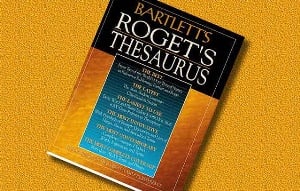To Keep Their Writing Natural And Engaging, Business Writers Should Avoid

There are numerous characteristics of a good essay: original thinking, a tight structure, balanced arguments, and many more.
But one aspect often overlooked is that a good essay should be interesting. It should spark the curiosity of the reader, keep them absorbed, make them want to keep reading and learn more. A boring essay risks losing the reader's attention; even if the points you make are excellent, a dull writing style or poor handling of a dry subject matter can undermine the positive aspects of the essay. The problem is that many students think that essays should be like this: they think that a dull, dry style is suited to the purposes of academic writing, and don't consider that the teacher reading their essay wants to find the essay interesting. Academic writing doesn't have to be – and shouldn't be – boring. The good news is that there are plenty of things you can do to make your writing more interesting, even though you can only do so much while remaining within the formal confines of academic writing. Let's look at what they are.
1. Be interested in what you're writing about

If there's one thing guaranteed to inject interest into your writing, it's actually being interested in what you're writing about. Passion for a subject comes across naturally in your writing, typically making it more lively and engaging, and infusing an infectious enthusiasm into your words – in the same way that it's easy to chat knowledgeably to someone about something you find interesting. This makes it relatively easy to write interestingly about a subject you have a real passion for. However, problems arise when you're forced to write an essay about subjects for which you lack enthusiasm. It's difficult to conjure up passion for your least favourite subjects, and that will come across in your writing. There are steps you can take, though: here are some tips on writing about a subject you don't enjoy.
- Adjust your mindset: convince yourself that there are no boring subjects. If the subject or essay comes across as boring, blame yourself; if you find yourself feeling negatively about it, try to find the interest in it. Think about how it relates to the real world and how important the subject is. Find interesting snippets of information about it and look at it from a new angle.
- Think about your reader: consider the fact that not everyone will find the subject as boring as you do. As you write, keep the reader in mind and imagine them to be the world's biggest fan of this subject.
- Find the fans: if you find it impossible to get into the mindset of your audience, try Googling the subject to find forums, videos or blog posts in which the subject is discussed by people who do find it interesting. This will help you picture whom you're writing for, and give you a different perspective on a subject you may not have found inspiring up to now.
2. Include fascinating details

Another factor that can make an essay boring is a dry subject matter. Some subjects or topic areas are naturally dry, and it falls to you to make the essay more interesting through your written style (more on this later) and by trying to find fascinating snippets of information to include that will liven it up a bit and make the information easier to relate to. One way of doing this with a dry subject is to try to make what you're talking about seem relevant to the real world, as this is easier for the reader to relate to. In a discussion of a seemingly boring piece of legislation, for instance, you could make a comment along the lines of "if it were not for this legislation, none of us would enjoy the freedom to do such and such today", or "Legislation A ultimately paved the way for Legislation B, which transformed criminal law as we know it." Make it seem exciting!
3. Emulate the style of writers you find interesting
When you read a lot, you subconsciously start emulating the style of the writers you read. It's therefore beneficial to read widely, as this exposes you to a range of styles and you can start to take on the characteristics of those you find interesting to read. If you feel engaged with a piece of writing, the writer must be doing something right! As you read, think consciously about what the writer is doing to hold your interest, perhaps underlining or copying out certain phrases, techniques, sentence structures and so on. Then apply their techniques to your own writing.
4. Write in the active voice

It's the oldest trick in the book, but using the active rather than the passive voice will automatically make your writing more interesting to read. It results in more direct, energetic writing that makes the reader feel more 'in the moment'. Unfortunately, many students employ the passive voice in the belief that it makes their writing sound more academic or intellectual; in fact, it makes their writing sound boring. Remember, the active voice is when the subject of the sentence "acts", while the passive voice is when the subject is acted upon.
Passive: It was concluded by the scientists that the methods used were…
Active: The scientists concluded that the methods used were…
The subject in this example is "the scientists" and the "act" they are carrying out is "concluding". As you can see in this example, the active voice almost always results in neater and more elegant phrasing, which is more concise and enjoyable to read.
5. Borrow some creative writing techniques
There's clearly a limit to the amount of actual 'story-telling' you can do when you're writing an essay; after all, essays should be objective, factual and balanced, which doesn't, at first glance, feel very much like story-telling. However, you can apply some of the principles of story-telling to make your writing more interesting. For example, just as the opening sentence or paragraph of a novel is incredibly important in capturing the attention of the reader early on, so the first paragraph of your essay is essential in making your reader want to continue reading it. Start with an attention-grabbing 'hook' to draw them in, such as a controversial statement, a tantalising snippet of information or a rhetorical question (more on these below). Here are some more techniques you can adopt from creative writing to improve your essays.
6. Think about your own opinion

Your essay is bound to be boring if all you do is paraphrase what everyone else says about something. A good essay – in humanities subjects, at least – incorporates the writer's intelligent responses to what others say, and this critical consideration not only shows that you're thinking at a high academic level, but it automatically adds more interest and originality to your writing. So, think independently and don't be afraid to demonstrate that you're doing as much.
7. Cut the waffle
Rambling on and on is boring, and almost guaranteed to lose the interest of your reader. You're at risk of waffling if you're not completely clear about what you want to say, or if you haven't thought carefully about how you're going to structure your argument. Doing your research properly and writing an essay plan before you start will help prevent this problem.
Editing is an important part of the essay-writing process, so once you've done a first draft, edit out the waffle. Read through your essay objectively and take out the bits that aren't relevant to the argument or that labour the point. As well as editing out chunks of text, it's important to be economical with words – not using ten where five will suffice, and avoiding clunky phrases such as those outlined in this article. During the editing process, tighten up your phrasing by eliminating unnecessary words and reordering any sentences that read badly.
8. Using a thesaurus isn't always a good thing

You may think that using a thesaurus to find more complicated words will make your writing more interesting, or sound more academic, but using overly high-brow language can have the wrong effect. It alienates the reader and makes you sound pompous, with the result that the essay is more laborious to read and the reader may quickly lose interest. Despite this, many undergraduates admit to deliberately over-complicating their language to make it sound more high-brow. If you want to keep your reader interested, keep your language clear and simple.
9. Avoid repetitive phrasing
Avoid using the same sentence structure again and again: it's a recipe for dullness! Instead, use a range of syntax that demonstrates your writing capabilities as well as making your writing more interesting. Mix simple, compound and complex sentences to avoid your writing becoming predictable.
10. Use some figurative language

As we've already seen, it's easy to end up rambling when you're explaining difficult concepts, – particularly when you don't clearly understand it yourself. A way of forcing yourself to think clearly about a concept, as well as explaining it more simply and engagingly, is to make use of figurative language. This means explaining something by comparing it with something else, as in an analogy. For example, you might use the analogy of water escaping from a hole in a bucket to explain the exponential decay of a radioactive substance, as the rate of depletion of both depends on how much remains, making it exponential. This gives the reader something familiar to visualise, making it easier for them to understand a new concept (obviously this will not be a new concept for the teacher who set your essay, but they will want to see that you can explain concepts clearly and that you have a thorough grasp of it yourself).
11. Avoid clichés
Clichés are overused words or phrases that make your writing predictable, and therefore less interesting. An example would be "at the end of the day", but there are many such favourites of student essay-writers. Don't forget that your teacher will have a stack of essays to read in one sitting; if you use the same tired expressions everyone else uses, your essay will blend in with all the others. Make it stand out by shunning the clichés you know your classmates will be using.
12. Employ rhetorical questions

One of the ways in which ancient orators held the attention of their audiences and increased the dramatic effect of their speeches was by making use of the rhetorical question. What is a rhetorical question? It's essentially one you ask without expecting your audience to answer – one that you will answer yourself, like the one we asked in the previous sentence. This can be an effective way of introducing a new line of enquiry, or of raising questions that you're going to address in more detail. A good place to use a rhetorical question is at the end of a paragraph, to lead into the next one, or at the beginning of a new paragraph to introduce a new area for exploration. The rhetorical question, "But is there any evidence to support X's claim?" could, for instance, begin a paragraph that discusses evidence for an opinion introduced in the previous paragraph. What's more, as we've already seen, you could use a rhetorical question as your 'hook' to lure readers in right at the beginning of your essay.
13. Proofread
Finally, you could write the most interesting essay a teacher has ever read, but you'll undermine your good work if it's littered with errors, which distract the reader from the actual content and will probably annoy them. Before you submit your essay, proofread it thoroughly to ensure that the grammar is elegant, the punctuation is perfect and the spelling is flawless. Don't just use a spelling and grammar checker, as these don't always pick up on all the errors.
Image credits: banner; carousel; rose; scientists; baby; thesaurus; hawk; questions.
To Keep Their Writing Natural And Engaging, Business Writers Should Avoid
Source: https://www.oxford-royale.com/articles/make-writing-interesting/
Posted by: gainesfreace.blogspot.com

0 Response to "To Keep Their Writing Natural And Engaging, Business Writers Should Avoid"
Post a Comment